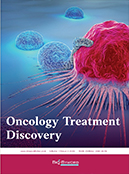Abstract
Objective: To investigate the effect of letrozole on patients undergoing postoperative endocrine therapy for breast cancer. Methods: The period of the study was from June 2021 to January 2023, and 40 patients who were undergoing postoperative endocrine therapy for breast cancer were grouped into two groups by randomized numerical table method: the observation group and the control group. The observation group was given letrozole and the control group was given tamoxifen. At the end of the medication, the results of each index of the two groups were compared. Results: After medication, The Kupperman score of the observation group was lower and Karnofsky Performance Scale (KPS) score was higher compared to the control group (P < 0.05). Besides, the high-density lipoprotein cholesterol (HDL-C) level of the observation group was higher than that of the control group after treatment (P < 0.05). Moreover, the adherence to medication and regular follow-up rate of the observation group was higher than that of the control group (P < 0.05). Lastly, all liver function indexes of the observation group were lower than those of the control group after treatment (P < 0.05). Conclusion: Letrozole is more effective in treating breast cancer patients who are undergoing postoperative endocrine therapy, with less impact on blood lipids and liver function. Therefore, it is worthy of further research and application.
References
Peng C, Chen J, Li S, et al., 2023, Evidence-Based Pharmacoeconomic Evaluation of Piperacillin in Combination with Letrozole Versus Docetaxel in Combination with Epirubicin for the First-Line Treatment of Advanced Breast Cancer. Chinese Pharmacology (English Edition), 32(3): 214–222.
Chinese Anti-Cancer Association International Medical and Communication Branch, Breast Cancer Group of Oncologists Branch of Chinese Physicians Association, 2023, Expert Consensus on the Application of Multigene Testing in the Postoperative Adjuvant Treatment of Hormone Receptor-Positive Human Epidermal Growth Factor Receptor 2-Negative Early-Stage Breast Cancer (2023 Edition). Chinese Journal of Oncology, 45(10): 863–870.
Liu Y, Qi Y, Mao X, 2022, Assessment of Adherence to Endocrine Therapy in Breast Cancer. Evidence-Based Medicine, 22(5): 303–308.
Kang X, Zhao L, Lu C, 2022, Clinical Observation on the Treatment of Hormone-Dependent Breast Cancer by Combining Hassun Thirteen Flavor Pills with Letrozole Tablets. West Chinese Medicine, 35(8): 66–69.
Zhang Z, Liu Y, Ding L, 2022, Efficacy and Safety of Perphenazine in the Treatment of Hormone Receptor-Positive Human Epidermal Growth Factor Receptor 2-Negative Advanced Breast Cancer. Chinese Journal of Clinical Pharmacology, 38(21): 2545–2549.
Zhang W, Kong J, Cui Y, 2023, Analysis of a Clinical Study of Perphenazine in the Treatment of Hormone Receptor-Positive/Human Epidermal Growth Factor Receptor 2-Negative Advanced/Metastatic Breast Cancer. Chinese Journal of Clinical Pharmacology, 39(4): 573–577.
Meng C, Zhang F, Su Y, 2021, Research Progress of Letrozole in Adjuvant Endocrine Therapy for Breast Cancer. Cancer Progress, 19(5): 438–441.
Jiang Y, Jin C, Xia W, 2022, A Case of Osteoporotic Vertebral Fracture Due to Bone Microstructure Damage by Aromatase Inhibitor Treatment in Postmenopausal Breast Cancer. China Cancer Clinic, 49(11): 593–594.
Pang H, Wang W, Li Y, 2022, Progress of Research on the Application of Endocrine Therapeutic Agents After Breast Cancer Surgery. China Prescription Drugs, 20(10): 189–191.
Wang C, Cao F, Wang P, et al., 2023, A Study of Body Component Changes During Endocrine Therapy in Breast Cancer Patients Assessed by Quantitative CT. China Medical Equipment, 20(1): 47–50.
